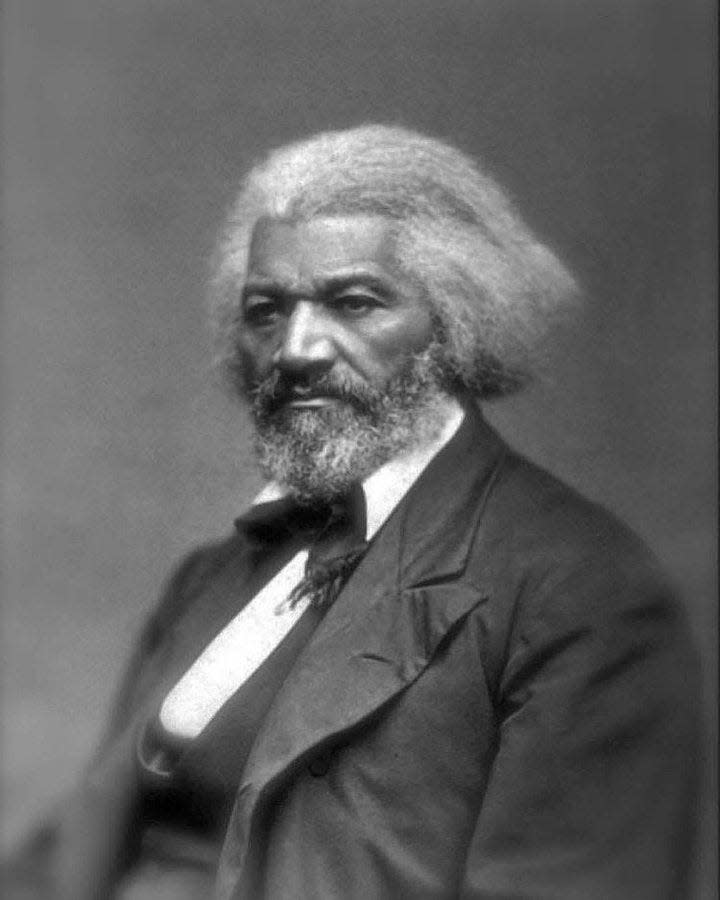'Your celebration is a sham': Join in to read Frederick Douglass' fiery call for justice
- Oops!Something went wrong.Please try again later.
- Oops!Something went wrong.Please try again later.
FALL RIVER — The Heritage State Park Visitors Center will mark America’s birthday month with a public reading of perhaps the country's most scathing critique: “What to the Slave is the Fourth of July?” by abolitionist Frederick Douglass.
The speech is among several selections by the great American writer and orator to be featured at the Reading Frederick Douglass Together event on Sunday, July 23, at 1 p.m.
Re-enactors in mid-19th century dress will depict various periods in Douglass’ life, and members of the community will read the speech and other poems. The event will also include the singing of abolitionist songs by Julia Griffiths, Marcus Johnson and the First Congregational Church choir. Light refreshments will be served.
Sharing art with the public: Two Fall River groups got $140K in art grants. Their projects will benefit the whole city.

Who is sponsoring this event?
The event is part of MassHumanities’ Reading Frederick Douglass Together series, an annual event held across the state to honor Douglass’ work. The Creative Arts Network is hosting the event, paid for with a MassHumanities grant.
Who was Frederick Douglass and what was his local connection?
Douglass was born into slavery in Maryland in either 1817 or 1818, likely conceived when his mother was raped by her slavemaster. After obtaining some rudimentary literacy at age 12, Douglass continued teaching himself to read and write in secret, understanding that “knowledge is the pathway from slavery to freedom”; he would spread literacy to other slaves.
He escaped slavery around age 20 and fled north with the aid of Anna Murray, a free Black woman with whom he’d fallen in love. For several years they settled in New Bedford, which as a major port had developed a reputation as a haven for abolitionists and Black people who had fled slavery in the South.
During his time in New Bedford, Douglass spoke at a meeting of the New England Anti-Slavery Society in August 1841, which became the start of his career as an orator and a political figure, delivering fiery rhetoric against the evil of slavery.
Help honor his memory: Edwin Porter wrote the first book on the Lizzie Borden trial. He needs a gravestone.
Why is his Fourth of July speech significant?
Douglass’ “What to the Slave is the Fourth of July?” speech was delivered on July 5, 1852, at Corinthian Hall in Rochester, New York, at a meeting organized by the Rochester Ladies' Anti-Slavery Society.
It is one of Douglass’ most famous and most bitter speeches, highlighting the hypocrisy of Americans celebrating the country's independence and freedom when millions of their fellow human beings were kidnapped and living in forced servitude. To slaves, Douglass told the crowd, “your celebration is a sham; your boasted liberty, an unholy license; your national greatness, swelling vanity ... your shouts of liberty and equality, hollow mockery … a thin veil to cover up crimes which would disgrace a nation of savages.”
And yet as harsh as Douglass was, his speech also looked to the future with hope that “the doom of slavery is certain.”
The speech, now famous for its passion and eloquence, is what modern audiences might recognize as an examination of social privilege — and a call to tell true stories and not myths. According to MassHumanities, the speech asks people “to think about the histories we tell, the values they teach and if our actions match our aspirations.”
How can you participate in Reading Frederick Douglass Together?
The event is free, and tickets are not required.
According to MassHumanities, an abridged version of Douglass’ speech takes about 30 minutes.
For more information about the event, email Jerica Washington at jdarleenwashington@gmail.com.
This article originally appeared on The Herald News: Frederick Douglass anti-slavery speech to be read at Fall River park

